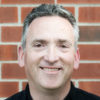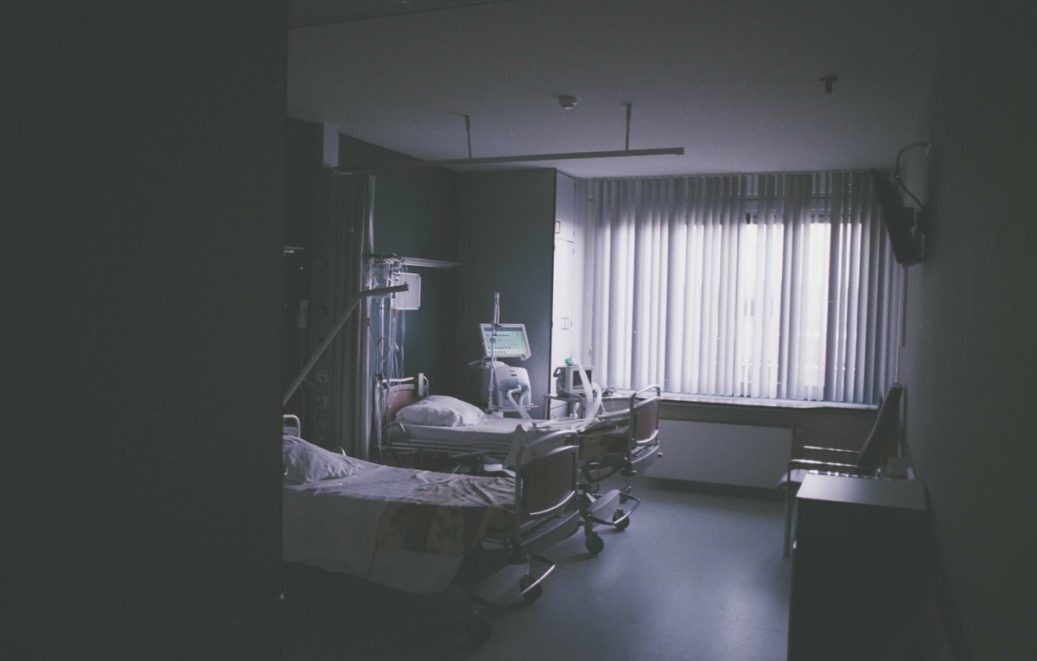A Story of God’s Healing Hand
I had just finished preaching a sermon about what to do when our health fails. After the service, as I walked across the parking lot, my legs gave out and I collapsed against the side of my car.
For a couple of years I had been gradually declining in health without any clear diagnosis. It began with weakness, anxiety, weight gain, high blood pressure and a change in blood sugar. In the second year, the decline was a runaway train—chills, swelling, digestion and bladder issues, kidney and liver problems. There were multiple scans, ultrasounds, MRIs and countless blood and urine tests. On a hunch, a doctor ordered a test that confirmed Cushing’s Disease—a small tumour on my pituitary gland that essentially had caused it to go to sleep. A healthy pituitary gland regulates the hormone level in the body but with Cushing’s, the production of hormones is unchecked — like a valve stuck in the open position. The only treatment is neurosurgery—up through the nose and dangerously close to the optic nerve and brain. By the time I got to surgery, I had only a few weeks to live.
Surgery was successful—the tumour was gone but my condition dramatically declined. I had difficulty breathing, was vomiting blood, had a seizure and it appeared to everyone, including me, that I was dying. More tests. One showed a clot near my heart. It was critical. Doctors weren’t sure how to proceed. They were loath to use blood thinners because of the risk I would bleed to death from my surgical site. They didn’t think I was strong enough to survive open-heart surgery. I remember three doctors, gathered around my bed in the ICU, arguing about how to proceed. But they agreed on one thing—if they did nothing, I would die. In the end, they treated the clot laparoscopically by inserting a catheter through my leg up to the clot. Their plan was to release some blood thinner locally and hope for the best. But I started to bleed. They were forced to stop treatment. It was now a matter of wait and see.
That night, I worked hard to prepare for death. I took hold of the promise that God loved my wife and kids more than I did and I could entrust those I loved to Him. Physically, emotionally and spiritually it was a nightmare, not at all what I imagined the “valley of the shadow of death” to be like. If I had not secured my commitment to Christ ahead of time I would not have been able to do it then. But because the matter had been settled, I knew God was with me. Despite the fear and confusion I was able to surrender everything to Him, my past, present and future. The next morning, to my surprise, I was still alive. I remained in hospital for three weeks. Six months later, I am still recovering.
I no longer view routine blood tests as a casual inconvenience. I now know that we are all just one blood test away from a life altering experience. What do you do when you hear the doctor say, “The test came back positive”? What do you do when that happens to a friend or someone in your church or a parent at your kid’s school? We all need to develop a theology of suffering and dying because sooner or later we will all suffer. And die. The Bible is filled with teaching on suffering that we often gloss over—until we’re knee deep in it.
Over the months leading up to my surgery, I had an increased awareness that I was dying. While I desperately did not want to die, I knew that if I was going to, I wanted to die well. A friend, who is a pastor, has a saying that became my mission, “In order to die well, you must learn to live well.” Death has the ability to radically focus our ambitions and goals. I began working through an inventory of my life. I started by looking at my relationships and honestly assessing if there was anyone I needed to forgive. Was there any unfinished business? This was for my own good. I didn’t have the strength to carry those grudges and I needed to forgive those people who had hurt or offended me.
Then I asked God to bring to mind all those people from whom I needed to seek forgiveness. I started contacting them, confessing my wrongs, asking for forgiveness and offering to make things right. Over the years, I have learned a measure of what it means to forgive others, but I discovered that asking for forgiveness was a lot harder! To my great delight, most people were amazingly gracious when I came clean with them.
I also thanked people who had been a blessing or an encouragement to me over the years—a college roommate, a woman who used to babysit me, a friend from childhood, people from church. I told them how God had used them in my life.
It’s strange for non-believers to hear that a God they do not believe in is using them to encourage others. People don’t always get it when you say, “I just want to buy you lunch and bless you.” But in the end, they all appreciated it and it felt good every time I took the opportunity to express gratitude.
Leading up to the surgery, I asked the elders of the church to come to our house, serve our family communion, to pray over us and anoint me with oil for healing. I began entrusting my pastoral responsibilities into the care of my colleagues. I put my finances in order. I fixed our cars and repaired things around the house to make it easier for our family. I wrote letters to each of my four boys and to my wife, simply reminding them of the good things I see in them, how proud I was of them and how much I loved them. I lived as if I was dying and now, very much alive, it taught me how to live.
During my hospital stay and recovery, we were overwhelmed by countless acts of kindness. Some visited, others cooked us meals, gave our children rides to their activities, and helped our kids get on the ice at hockey. Some sent cards. Some called, listened, prayed, sat with us in the hospital. What surprised me was the visits from distant friends, acquaintances, even strangers. Some in our closer community were silent. So, the love expressed through the unexpected was like a wink and a whisper from God telling us He was still there.
Think about those in your life who are suffering right now, maybe dying. You may not feel particularly close to them but you may be just the person God wants to use to encourage them. Don’t just say, “I will pray.” Stop—put your hand on them and pray right then. Buy an extra bag of groceries and drop it off anonymously. Leave a message and don’t expect a return call. Become the hands, voice and feet of God in the life of someone who is suffering. We will all die, it’s not a choice. But we do get to choose how we will live. Live like you were dying.
About


